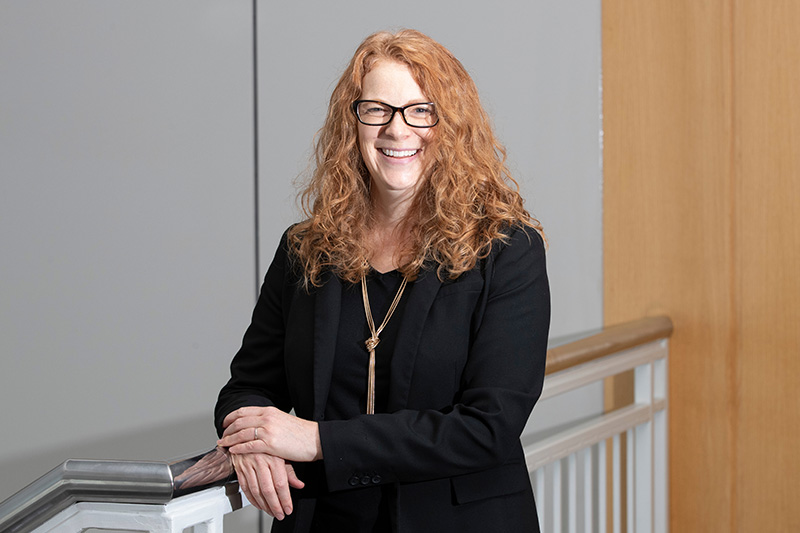Associate professor Dr. Abby Templer Rodrigues of the Department of Sociology, Anthropology and Gerontology (SAG) recently published her research on science, technology, engineering and math (STEM) scholarship equity.
The article, “Participation of women in STEM: an intersectional approach,” appeared in the open-source Brazilian journal Revista Estudos: Feministas in March 2025. Templer Rodrigues originally presented this research in 2023 at the 21st Biennial Conference of the Brazilian Sociological Society in Belém, Brazil.
Templer Rodrigues has taught at Missouri State since Fall 2018. Her research interests include work and occupations, qualitative methods and social inequities. She is currently writing a book on the creative economy in rural Massachusetts.
Answering a request to evaluate a scholarship program
Previously, Templer Rodrigues has researched equity issues for faculty in higher education. When asked to evaluate a scholarship program that supports academically talented students with financial need, she saw an opportunity to explore equity in higher education for students as well.
Templer Rodrigues was asked to study a scholarship program designed to increase access to STEM degrees based on social class. Her objective was to evaluate whether the program had met its goals.
In addition, Templer Rodrigues examined the program’s impact on participants based on their multiple or intersectional demographic characteristics. She wanted to determine whether a scholarship program aiming to improve class-based equity in STEM could also impact gender- and race-based equity.
Adapting to the unexpected

Templer Rodrigues originally constructed her research around a focus group format. When her outreach efforts generated a smaller sample than expected, she had to reframe her research methodology. She opted for an individual interview format instead.
To move forward, she first had to modify the research protocol she had submitted to the institutional review board (IRB). Next, shifting from a focus group format to individual interviews meant she spent more time collecting data than she had originally anticipated.
“Rather than talking to four to five people in 90 minutes, each individual interview lasted around 60 minutes,” she explained.
Finally, changing the method meant the type of data she collected also changed.
“Focus groups gather data on the individual experiences and ideas of participants and interactive data, that is, how participants reflect on and respond to what was said by their peers,” Templer Rodrigues explained. “Interview data allows for delving deep into the experiences and perceptions of an individual.”
Format reveals deeper insights
Templer Rodrigues believes switching to one-on-one interviews allowed her to mine more complex data.
“The interaction data that I lost by moving away from focus groups was compensated for in what was gained by the intimacy of the interviews,” she said.
The one-on-one format allowed participants to share sensitive information about their sense of belonging within their majors. Templer Rodrigues believes they might not have shared this same information in a focus group.
As a result, the participants recounted a variety of experiences. Some who were from a minority gender group described negative behaviors from peers. Others from a minority gender group who also had a racialized identity mentioned negative behavior from peers and harassment from professors.
At the same time, her research revealed that the scholarship program had positive outcomes. It helped to “alleviate the imposter syndrome” many women of all racial and ethnic backgrounds felt, Templer Rodrigues explained. One participant with a minoritized ethnic and gender identity said the program also helped them be seen as equals by their peers.
“These findings signal that, depending on their design, scholarship programs that aim to support students based on their social class can also have impacts on gender and racial equity,” she said.
Research an effective teaching tool
Templer Rodrigues frequently incorporates her research into the classroom, such as from this latest study, to illustrate relevant concepts.
Doing so “deepens my ability to teach methods, assisting students in their understanding of how research is conducted and how claims are made,” she said. “It greatly facilitates working with students who are crafting their own research projects.”
Explore degree options in sociology
Discover more from Reynolds College Blog
Subscribe to get the latest posts sent to your email.

